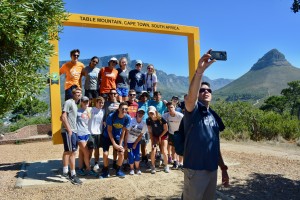Amanda Jones ’20:
Where did you grow up?
Swarthmore.
Where did you go to school?
Strathaven [High School], Bucknell, then Northeastern.
What did you major in college?
Political Science and English.
What did you do after college?
I was a journalist. I went to graduate school for that [journalism], and I actually paid for that, so my first job after college was bartending, to make some money. I lived at home for about nine months, then enrolled at Northeastern for journalism. My first job there was working in Asia, in Taiwan, at an English newspaper, as a staff reporter and editor. Then I came back to Boston, since I was at Northeastern and I worked at a couple local/community newspapers with computer/trade publications. I moved back to Philadelphia and at that point I was married and we were thinking of starting a family. So I worked at another computer publication. I wasn’t very happy, I had these visions of working at a major newspaper. I became fairly disillusioned with the industry, which turned out to be a valuable lesson because I learned that I really didn’t want to do that. And I became disillusioned with this idea when I was in Taiwan, for various reasons. Then the company I was working for, which was based out of Media, was about to go under. I had coached a lot, and my mother was a career educator so when a job opened up at Rosemont College, I took it. I taught classes there, but my primary job was in communications, as a sort of director on the PR side of things. While there, I was working with a design firm that was owned and operated by an EA graduate. Mark Heppi graduated in the late ‘60s and he did a lot of work for us at Rosemont. He came in one day and said that Episcopal was looking for a Communications Director and he thought I should apply. Long story short, I did and I was hired within 48 hours after I applied.

What was it like living alone in Taiwan as a young person, starting out your career?
Taiwan was a fantastic experience. At first, as you can imagine, it was completely unnerving. I had to adapt quickly to a completely different language, culture, and working environment. But it taught me an enormous amount about myself. What I was capable of and how I could push through adversity and challenges. From a professional perspective, it was a huge learning experience. I actually learned that despite what I thought, I really wasn’t cut out for the world of cutthroat, mass-media journalism. It sounds crazy, but learning what you don’t want to do with your life and career is sometimes just as important as learning what you do want to do.
What are your values as an educator?
I think in order for students to reach their full potential they have to feel valued, trusted, and understood. And if they have those things, if your students trust you and they know that you have their best interest in mind, that you are there to help them and support them even if they fail, then you can get kids to do amazing things. If you don’t have that, then helping them to reach their full potential becomes really difficult.
What’s one of the biggest problems in today’s world? And how can we solve it?
The biggest problem in my mind is an alarming trend in our cultural discourse to abandon civility and disregard factual evidence for selfish ends. We teach you to support your arguments with data, to analyze critically, and to develop well-conditioned positions. This can only be done when you engage with the world around you — the ideas, perspectives, and experiences of others. We want you to question your own suppositions and beliefs, so that you can develop a deeper understanding of yourself. Much of what I see in the wider world today is a direct threat to what institutions like Episcopal stand for — the pursuit of knowledge and wisdom. It’s ironic to me that in an age where information is almost universally accessible, ignorance is rampant. That’s frightening.
What are some of your outside interests/hobbies?
I love to travel and explore new places. I love to coach youth athletics — I coach many of my son’s teams — and I enjoy the outdoors. Hiking, biking, and spending time at our family house in the Poconos.
Favorite book?
The Miracle Life of Edgar Mint by Brady Udall or Tourist Season by Carl Hiaasen.
What’s one place you would want to travel to?
Israel.
What’s one thing on your bucket list for the future?
Climb Kilimanjaro before I’m too old.
What is the best part about EA?
The people, the students, the faculty, all of you every day is fantastic. There are ups and downs like every job I’m sure, but no day is ever the same, and it’s the relationship with people that makes it special.
What’s one piece of advice you would give to the EA community?
The world will be yours soon, so get civically engaged. There’s so much work to do.